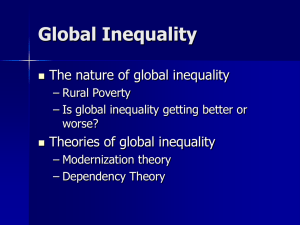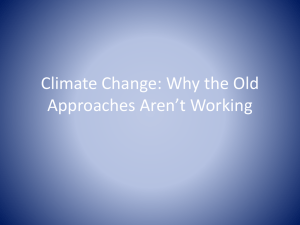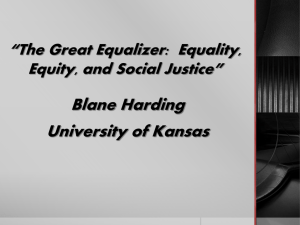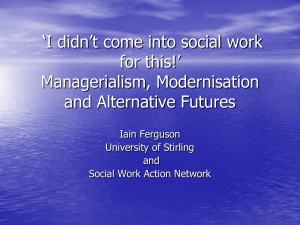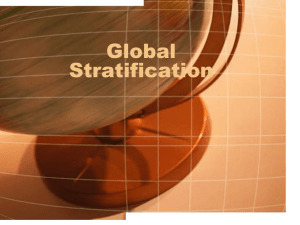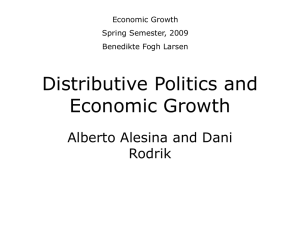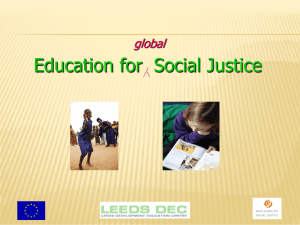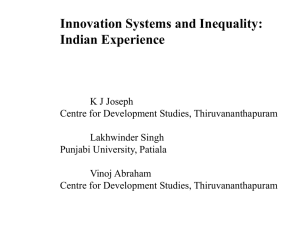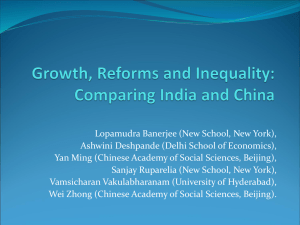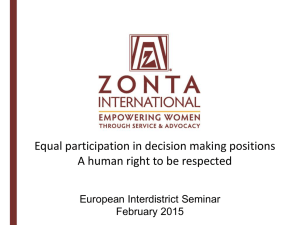Inequality - Oxfam Blogs
advertisement
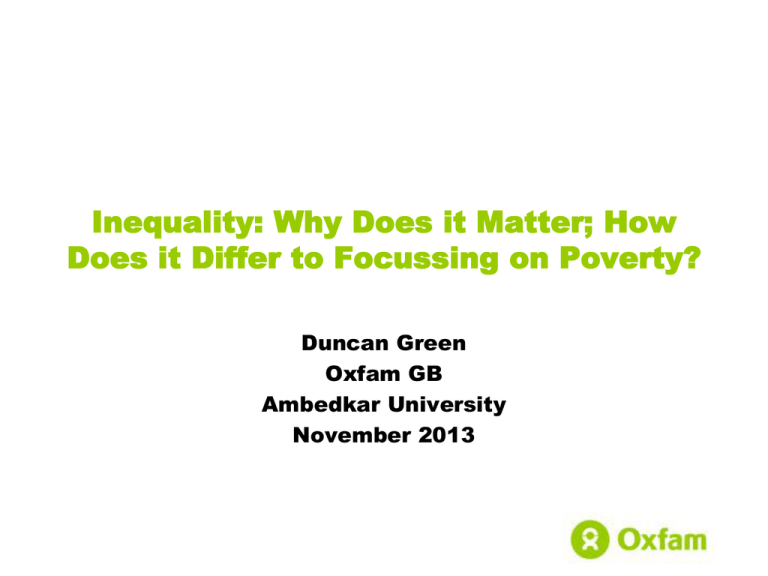
Inequality: Why Does it Matter; How Does it Differ to Focussing on Poverty? Duncan Green Oxfam GB Ambedkar University November 2013 What do we mean by Poverty? Absolute v Relative income Multidimensional – narrow (eg Human Development Index) Asking Poor People (Voices of the Poor) Well/ Ill being Static v Dynamic – fear of tomorrow What’s happening to income poverty? What do we mean by inequality? Income – Opportunity: soft and hard versions – Outcomes Multidimensional inequality Vertical v Horizontal (spatial) Intergenerational (temporal) Measurement: Gini v deciles Power Inequality is a rising concern Shared by just about everybody IMF links to major financial crises (rich elites recycling $) and social cohesion World Bank highlights how much harder it is to end poverty in unequal countries (eg South Africa) Stiglitz linking to political capture and positive feedback loops from influence Planetary boundaries and the finite cake Behavioural economics and link to wellbeing What’s happening to global income inequality? Global Gini improving due to rise of BRICS Global extremes getting worse 100 richest people = 4x poorest 1.4bn Gini within countries mixed Deteriorating in all but 4 G20 countries But improving in many non-G20 countries, eg in Latin America Globally, it’s the 2% G20 doing badly And good and bad performers converging Brazil v the RICS Brazil’s success story on inequality Over last decade, incomes of the poorest Brazilians have risen more than x5 faster than those of the richest Hunger ‘largely dealt with’ Cf New Deal or post War UK Women > men Blacks > whites Northeast > Southeast Cutting inequality needs much more than social protection Rights-based constitution Centre-left government Full employment Rising minimum wage, universal pension An integrated and effective public administration A high level of public participation Political and economic stability Gabriel Palma the most interesting Deciles tell you more than Gini (Convergence) In all countries, deciles 5-9 have (and keep) about 50% of wealth Rest is up for grabs between top 10% and bottom 40% Key political question is whether middle class allies with top or bottom What might an NGO inequality agenda look like? Structures matter (oil v jobs) Taxation – quantity and quality Ceilings v floors (eg land) Redistribution > income (eg tertiary ed = 16% social spending in Brazil) More on attitudes and beliefs: gender, but also caste, ethnicity, children, disability Focus on inequality between or within countries? Oxfam India on Inequality Income Missing Jobs, Low Wages and Discrimination Education & Health Public v Private To Have or Not a Toilet About Networks and Chances Rents and Redistribution Thanks!

